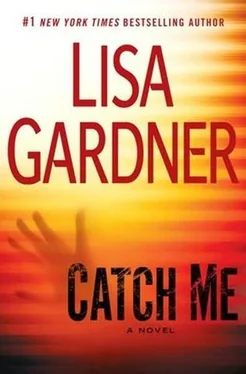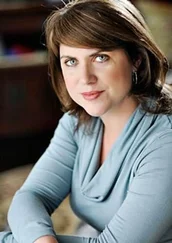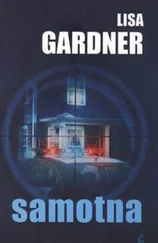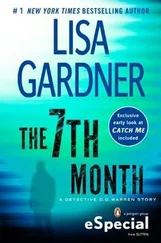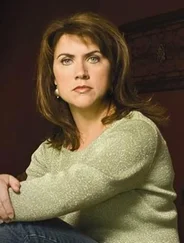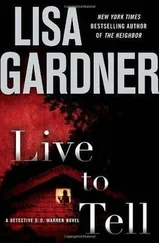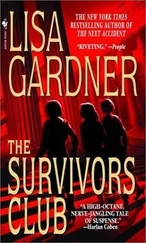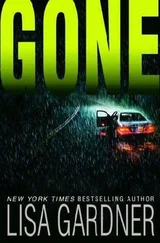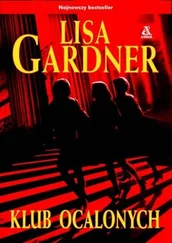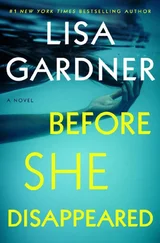Twelve months later, I still had more questions than answers. Mostly, I felt the stress of too many sleepless nights, the ticktock of a clock, so close now, so unbelievably close to a very personal, very gruesome deadline.
I walked down the sidewalk toward the T stop in Harvard Square, jumping at every unexpected noise, while thinking that it was a good thing I’d left my Taurus at home, because at this stage of the game, I was a danger to myself and others.
I wished it was already January 21. Frankly, I needed the fight.
A crunching sound behind me. Footsteps, fast and heavy breaking through the crusty snow. I jumped to the side, turning quickly. Two college students strode past me, the bottom half of their faces hidden behind thick plaid scarves. The boy glanced up at my acrobatics, gave me a funny look, then put his arm around the waist of the girl, pulling her closer to him as they walked past.
My heart rate had just resumed its normal pace, my feet turning back toward the Cambridge T stop, when the cell phone in my pocket chimed to life.
I pulled it out, half-curious, half-fatalistic. I flipped it open. “Hello.”
And heard nine-year-old Michael’s voice. “She called him. Last night. She’d been drinking and then she started crying and then she called him.”
I didn’t say anything. Couldn’t find the words through the rush of guilt and shame that flooded through my veins. Michael, and his sister Mica and his mother Tomika, the family I’d tried to save. Little Michael, whose father I’d taken from him, iron spikes protruding from his bloody chest.
“But he didn’t answer the phone,” Michael continued now, voice flat and quick, getting his story out. “Tillie, our next-door neighbor, answered, and he-she said Stan fell off the fire escape. He-she said Stan’s dead.”
“He-she?” I asked, the only words I could muster.
“Our neighbor Gary Tilton. ’Cept now he’s a she, so we call Tillie him-her or he-she, but never it ’cause that gets him-her mad.”
“Okay.”
“Charlie…is Stan really dead?”
“Yes.”
“Good!”
The vehemence in his young voice startled me, made me wince.
“She was gonna take him back. She was gonna take us back. Not even two days and already life was too hard and she needed her man even if he did break our fingers. I yelled at her, Charlie. I told her no. I told her she promised not to do that to us, but she just cried harder and picked up the phone. Why is she like that, Charlie? Why doesn’t she love us more?”
Michael’s voice broke. He wasn’t talking in a flat rush anymore, he was crying, a little boy consumed by giant, wrenching sobs, and I continued to stand there, back against a snowbank, searching for words that would both comfort a child and assuage my guilt.
I’d saved this boy by murdering his father. I’d played angel and avenger. I’d hurt in the name of hope.
Which I guess made sense, as nine-year-old Michael both mourned his father and was grateful he was dead.
“I’m sorry,” I said at last.
“Is she gonna be all right?” he asked at last, quieting his sobs. I understood he didn’t mean his little sister, but his mother.
“Give her time, Michael. Your mom’s never been on her own before. It’ll take some practice.”
“She’s just gonna find some other asshole,” he predicted, probably accurately.
“Are you guys staying put, or is she talking about moving back?” I hadn’t considered that news of Stan’s death might encourage Tomika to return to their old housing project, maybe even tell people of what she did, how I’d helped her.
“Can’t. They’re closing down the building. Gotta fix it.”
“Do you like the new place?”
“I like the yard. There are trees and stuff. And the apartment’s sunny. Mica likes the windows. She spent all yesterday standing in front of them. She even smiled.”
“Good, Michael, I’m happy to hear that.”
“Mom says we don’t gotta pay yet.”
“No, you’re okay for a bit.” I’d prepaid the first two months of the rental, the top floor of a converted house, within walking distance of a park, as well as a decent elementary school. I’d worked hard to find the apartment, hoping that a nice unit, conveniently paid up, would help Tomika realize that she could live alone and be happy. But maybe that was naïve of me. I wanted to judge Tomika, call her up and tell her to grow a backbone. But mostly, I remembered being a little kid in a big emergency room, injured once again by my own mother and never saying a word.
“Mom wants to go to the funeral. She says now that he’s dead, maybe we could get some money.”
I didn’t say anything. I didn’t know.
“I don’t think we should go. We’re supposed to be gone. We should keep it that way. Safer, if you ask me.”
“Maybe the three of you could have a funeral for your father.”
“No,” Michael said, and his voice was hard again, a boy sounding as angry as a man.
“It’s okay to miss him, Michael. He wasn’t always a bad guy. I bet sometimes he was nice to you. I bet you liked those moments. I bet you miss that dad.”
He didn’t answer.
“My mother used to stroke my hair,” I whispered. “In the middle of the night, when I had a bad dream. She would stroke my hair and sing to me. I loved that mom. I miss her.”
“You gonna see your mom?”
“No.”
“Are you…are you still afraid of her?”
I wanted to tell him no. That I was all grown up now, ready to shoot, hit, and chase all the shadows in the dark. But I couldn’t lie to Michael. I said, “Yes. Always.”
“How’d my daddy die, Charlie?”
“All is well, Michael. You’re a strong boy and your mother and sister are lucky to have you.”
The ground beneath my feet started to tremble, announcing the arrival of a subway in the tunnels below. “I gotta go now, Michael. Thanks for calling. I might be away for a bit. If you call and I don’t answer…Know that I’m thinking of you, Michael. I have faith. You’re a strong boy and you’re gonna be okay.”
“Charlie…Thank you.”
He hung up quickly. I slipped the phone back into my bag and ran for the train.
I MADE SURE I LOOKED BOTH WAYS before boarding the subway car. I took a seat with my back to the far wall, where I could watch all doors, monitor all people coming and going. My black leather messenger bag sat on my lap, my hands fisted around it.
I studied faces, met stares.
Until one by one, each of my fellow passengers stood up and moved away from me.
I sat alone, and even then, I didn’t feel safe.
“CHARLENE ROSALIND CARTER GRANT.”
Detective D. D. Warren uttered my moniker slowly, allowing each name its own weight and space. She’d met me in the lobby. Asked about my dog, asked about my gun, appeared genuinely surprised, perhaps even skeptical, that I’d dared to journey to Roxbury without either of them.
Instead of her tiny office, she’d led me to a modest-sized conference room, furnished with a table large enough for eight. Only other person in the room, however, was Detective O. She stood against a huge whiteboard, wearing a button-up men’s dress shirt in light blue.
When Detective Warren moved to her side, I realized they matched, as D.D. wore nearly the same shade of blue, but in silk. She’d paired hers with black slacks, while O had charcoal gray trousers with pencil thin stripes of blue and gray. D.D. had her short blond hair down, in loose curls that almost softened the hard lines of her face, while O’s rich brown hair was pulled back in a fat knot at the nape of her neck.
Two coordinating and contrasting images of female cop. One older, one younger. One athletic, one more feminine. One with direct blue eyes, one with deep brown eyes.
Читать дальше
